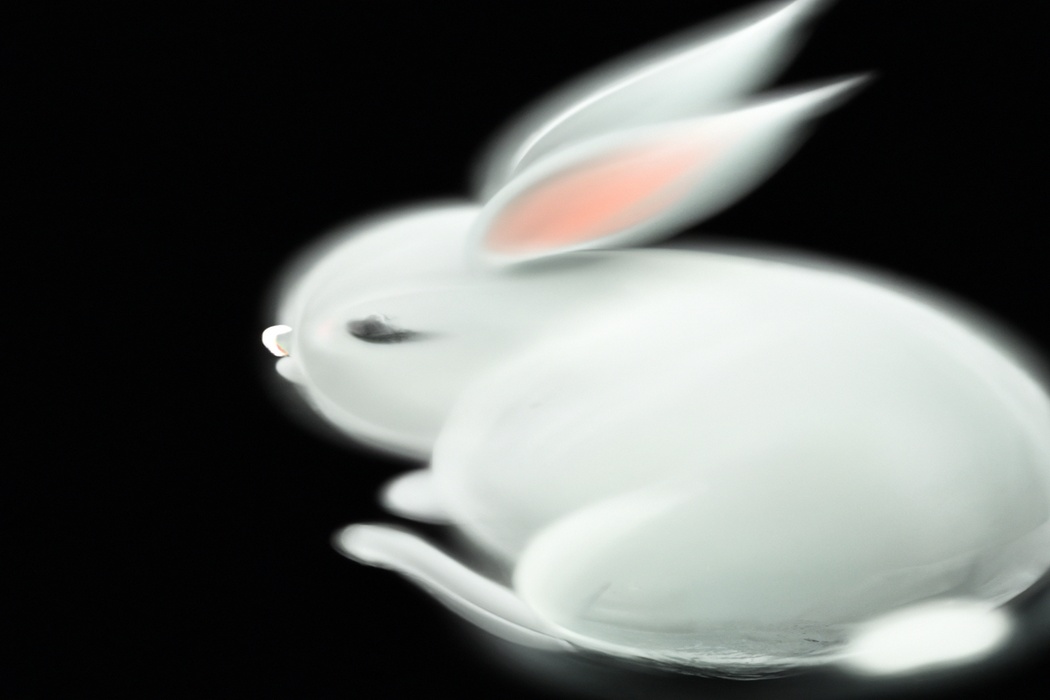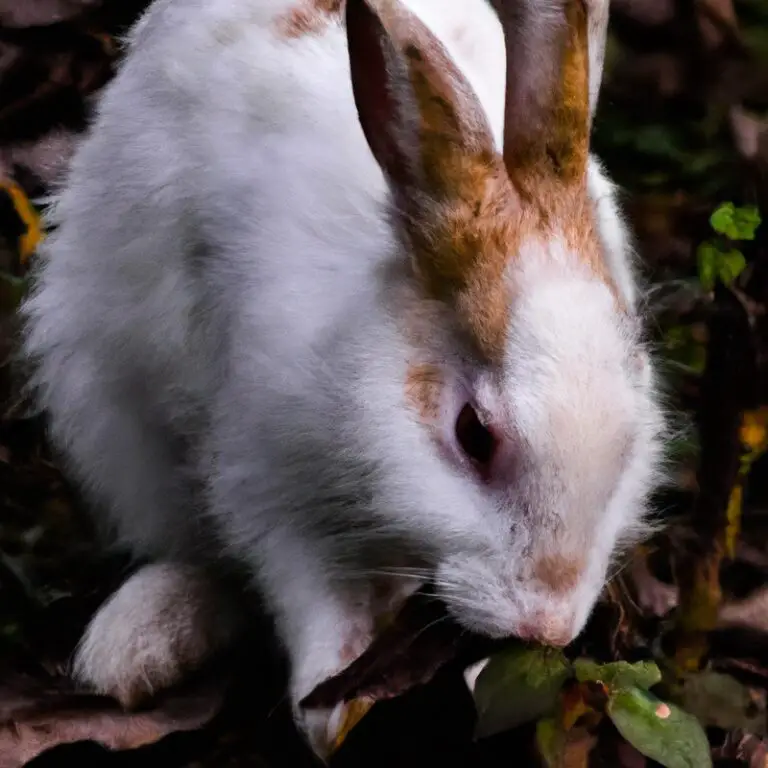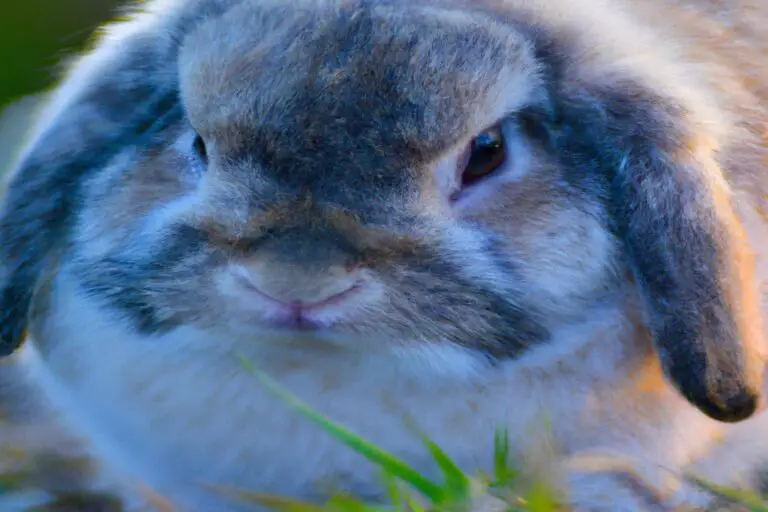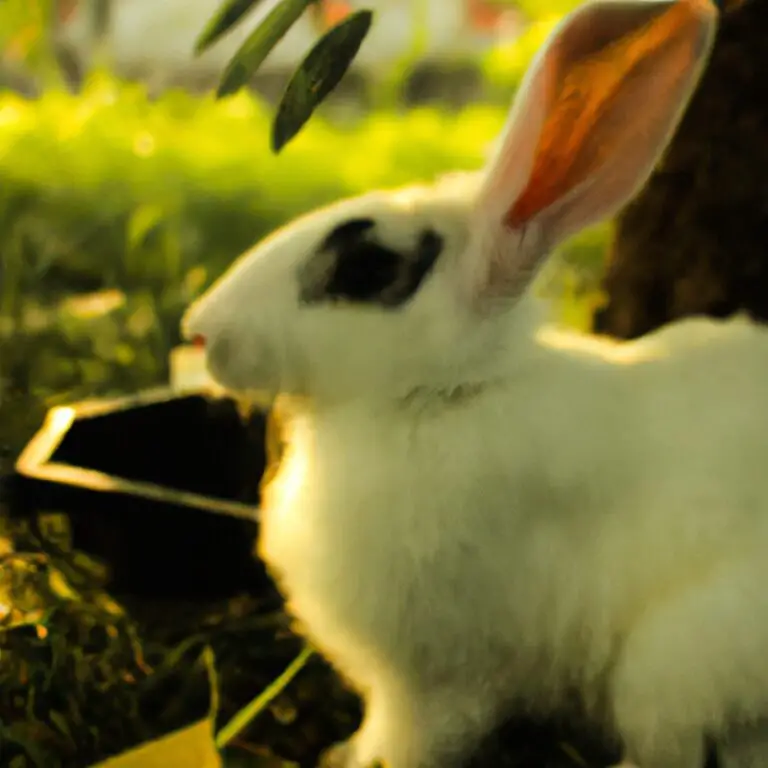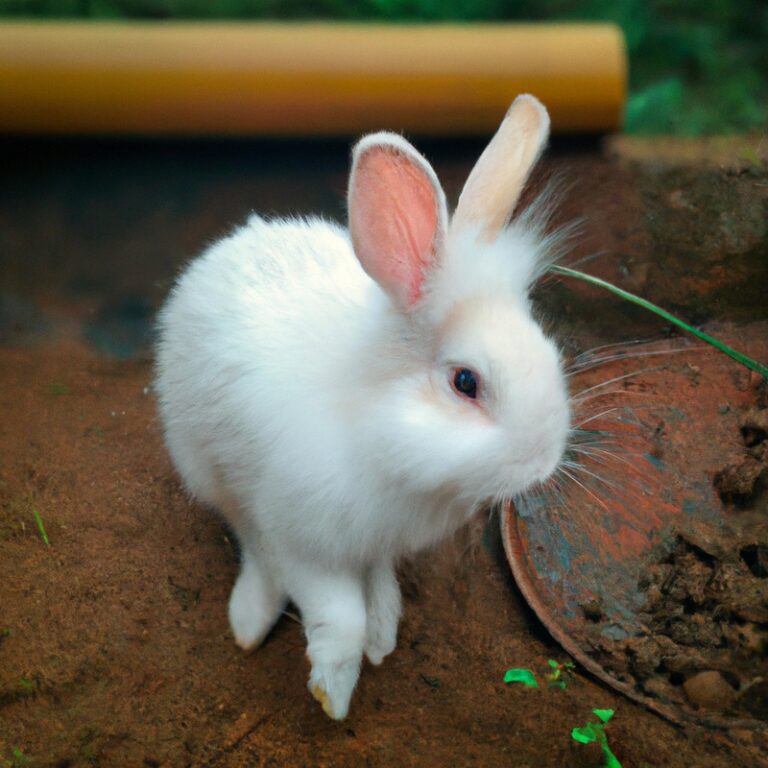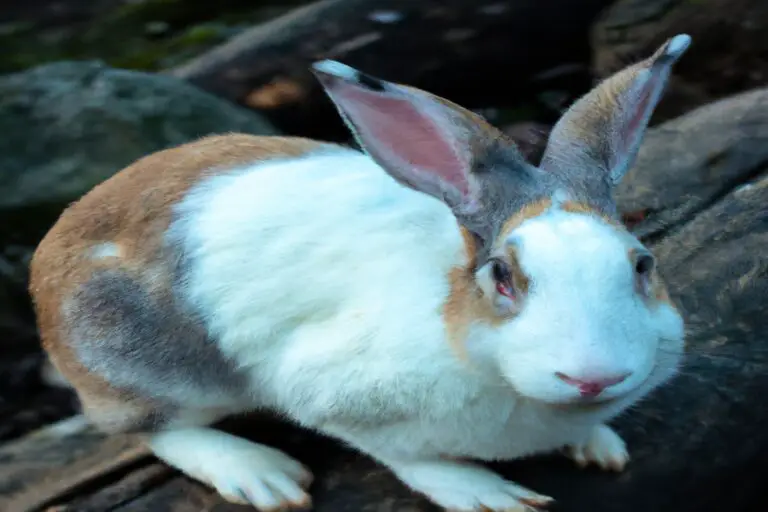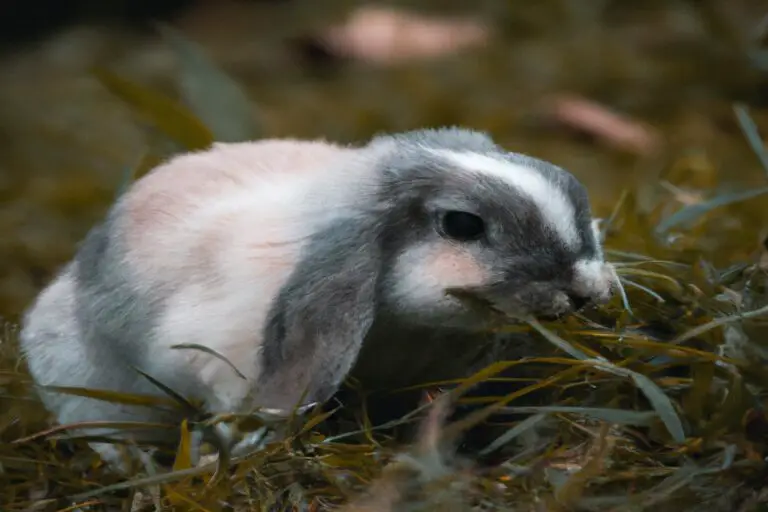Why Is My Rabbits Nose Moving So Fast: Fascinating!
Key Takeaways:
- Your rabbit’s fast-moving nose is a natural behavior called “bunny breathing.”
- Rapid nose movements help rabbits regulate their body temperature and detect scents in the environment.
- If your rabbit’s nose is twitching excessively or accompanied by other symptoms, it could indicate a health issue.
- Regularly observing your rabbit’s breathing patterns can help you identify any potential problems and ensure their well-being.
Have you ever looked at your rabbit and wondered why its nose seems to be moving at lightning speed?
It’s no secret that rabbits have a fascinating way of communicating with us through their body language.
One of the key aspects to decode their behavior is understanding their nose movement.
In this article, we’ll delve into the importance of rabbit body language, what constitutes normal nose movement, and the factors that might cause their adorable little snouts to work overtime.
Get ready to unravel the secret language of your furry friend!
| Reasons | Explanation |
| Curiosity | Rabbits have large olfactory lobes in their brains that help them process smells. A rapidly moving nose indicates that your rabbit is simply exploring its environment and trying to gather as much information as possible. |
| Excitement | When rabbits get excited or happy, their noses may start twitching rapidly. This could occur during playtime, when receiving treats, or when anticipating food or attention. |
| Health Issues | Sometimes, a rapidly moving nose can be a sign of respiratory problems such as an upper respiratory infection or allergies. If you notice other symptoms like sneezing, coughing, or nasal discharge, it’s best to consult a veterinarian. |
| Temperature Regulation | Rabbits regulate their body temperature through their ears and nose. If the environment is too warm, a rabbit’s nose may move rapidly as it tries to dissipate heat. |
| Mimicking Scents | Rabbits have a unique behavior called “binky,” where they run, jump, and twist in the air. During this behavior, their noses may move rapidly due to the excitement and potential exposure to various scents in the surroundings. |
Understanding Rabbit Behavior
Understanding rabbit behavior is important for rabbit owners to provide proper care and interpret their rabbits’ actions accurately.
The Importance of Rabbit Body Language
Rabbit body language is vital for understanding their needs and emotions.
Their noses may twitch rapidly to show they’re happy or curious, while slow breathing indicates relaxation.
Ears held back could mean fear or aggression, while ears forward often suggests curiosity.
Tensed body posture can signal stress, while a relaxed rabbit will have a loose, floppy body.
Paying attention to their body language helps you provide a comfortable and safe environment for your furry friend.
Normal Rabbit Nose Movement
A normal rabbit’s nose movement is usually fast and twitchy.
This is because rabbits have a highly sensitive sense of smell and use their noses to explore and gather information about their environment.
It’s a natural behavior for them to twitch their noses rapidly to take in scents and determine if they are safe or if there is food nearby.
So, if your rabbit’s nose is moving quickly, it’s just their way of staying aware and navigating their surroundings.
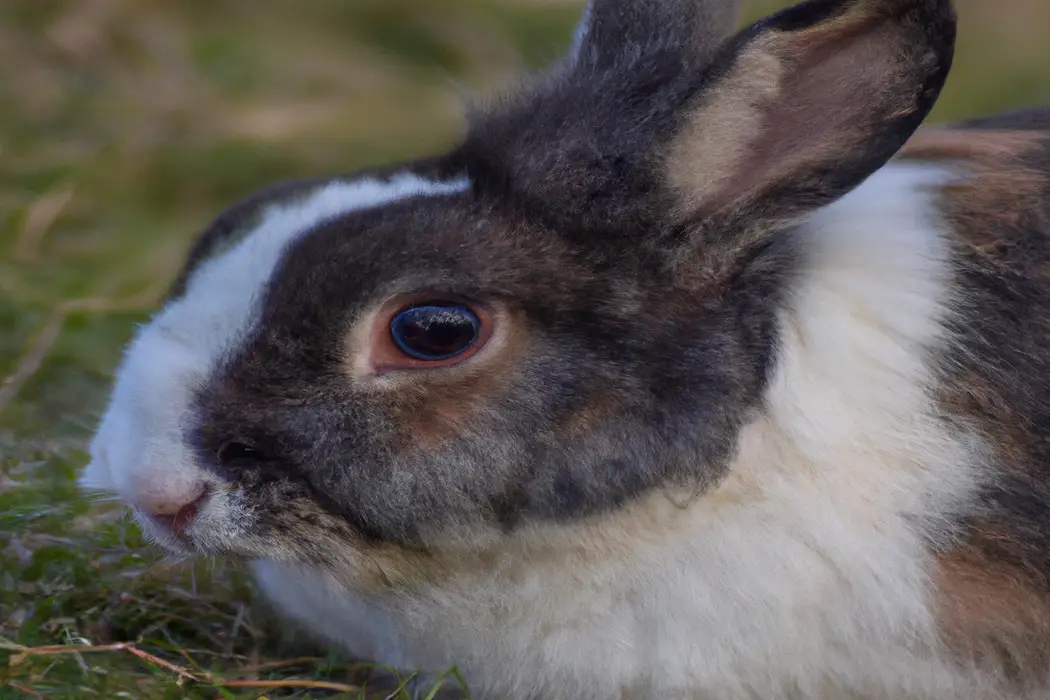
Factors that may Cause Rapid Rabbit Nose Movement
Factors that may cause rapid rabbit nose movement can vary depending on the situation and the rabbit’s overall health.
Respiratory issues such as allergies, infections, or foreign objects stuck in the nasal passage can result in faster nose movement as the rabbit tries to clear its airways.
Stress or anxiety can also cause rapid nose movement.
Additionally, rabbits have a natural “nose twitching” behavior that helps them detect scents in their environment.
If you notice persistent or concerning rapid nose movement in your rabbit, it’s best to consult a veterinarian for a proper diagnosis and treatment.
How to Interpret Rabbit Nose Movement
Interpreting rabbit nose movement can provide valuable insights into their behavior.
Here’s what you need to know:
- Rapid twitching or wiggling: This usually indicates that your rabbit is excited or happy.
- Sniffing and twitching: Your rabbit is likely exploring their surroundings or trying to locate something of interest.
- Frequent or forceful sniffing: It could indicate that your rabbit has picked up on an unfamiliar scent or is trying to detect danger.
- Continuous, rapid breathing: This may be a sign of stress, overheating, or respiratory issues. Monitor their behavior and consult a veterinarian if you’re concerned.
Understanding your rabbit’s nose movements can help you better understand their emotions and needs, ensuring a happy and healthy bunny friend.
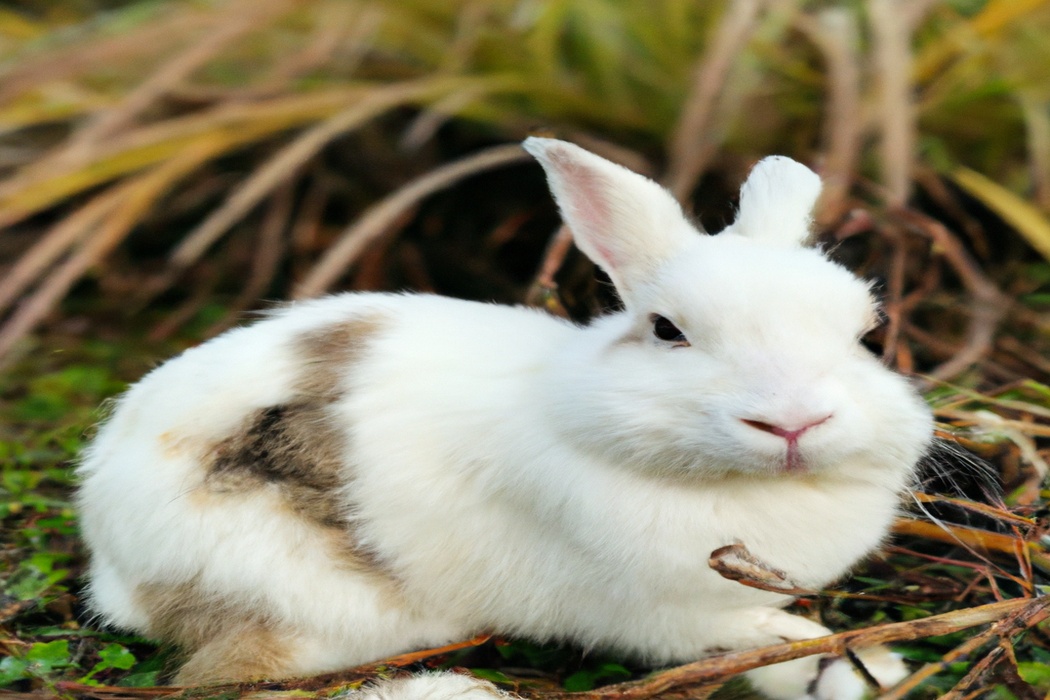
When to Seek Veterinary Assistance
If you notice any sudden changes in your rabbit’s behavior or if their nose is moving unusually fast, it’s important to seek veterinary assistance.
Rabbits can be sensitive creatures, and rapid nose movement could indicate a respiratory issue or stress.
Your veterinarian will be able to conduct a thorough examination and provide the necessary treatment to help your rabbit feel better.
Remember, it’s always better to be safe than sorry when it comes to your furry friend’s health.
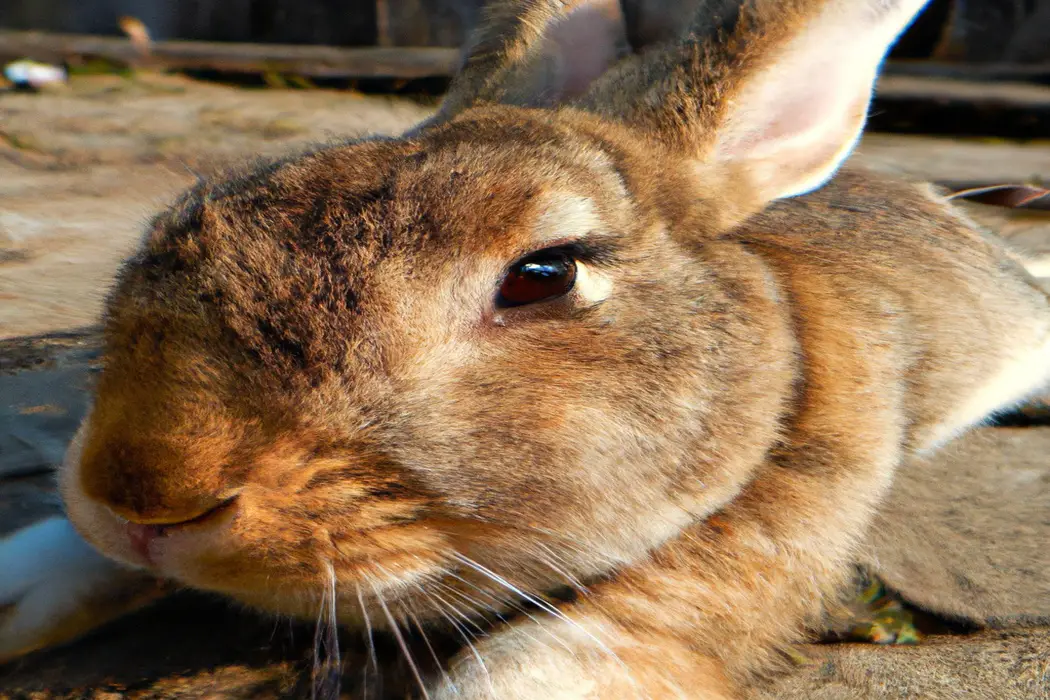
Frequently Asked Questions (FAQs)
FAQs:
1. Why is my rabbit’s nose moving so fast?
Rabbits have a unique respiratory system that allows them to breathe rapidly through their nose.
This fast-moving nose is a natural behavior and helps them regulate their body temperature.
It’s nothing to worry about!
2. How can I tell if my rabbit is happy?
A happy rabbit will display a few key behaviors.
They will have an alert and curious attitude, their body language will be relaxed, and they might even binky (leap in the air with joy).
If your rabbit is eating well, grooming itself, and interacting with you, they’re likely happy!
3. Should I let my rabbit roam freely in the house?
While it may be tempting to allow your rabbit to roam freely, it’s important to ensure their safety.
Rabbits are natural chewers and can chew on dangerous items or get tangled in cords.
Providing a secure and rabbit-proofed area, such as a playpen or a designated rabbit room, is a better option.
4. Can rabbits be litter-trained?
Yes, rabbits can be litter-trained! It will take patience and consistency, but with a proper litter box filled with rabbit-safe litter, your rabbit can learn to use it.
Put some hay in or near the litter box as rabbits tend to eat and poop at the same time.
5. Why does my rabbit thump its foot?
Thumping is a way for rabbits to communicate danger or potential threats.
If your rabbit starts thumping its foot, it could mean they heard or sensed something that alarmed them.
It’s their way of warning you and other rabbits to be cautious.
6. How much exercise does my rabbit need?
Rabbits require daily exercise to stay healthy and happy.
They should have at least a few hours of supervised and free-range playtime outside of their enclosure.
Ensure they have enough space to run, jump, and explore.
Providing toys and tunnels can also keep them mentally stimulated.
7. Can rabbits eat fruits and vegetables?
Yes, rabbits can eat certain fruits and vegetables, but they should be introduced gradually and in moderation.
Stick to rabbit-safe options like carrots, leafy greens, apples, and strawberries.
Avoid feeding them foods high in sugar or that are toxic to rabbits, like avocados or chocolate.
8. Do rabbits like being picked up?
Not all rabbits enjoy being picked up.
While some rabbits may tolerate it, others may become stressed or frightened.
Instead of picking them up, try sitting or lying down near them to build trust and bond with them.
Always handle rabbits gently and support their back end.
9. How often should I groom my rabbit?
Rabbits require regular grooming to keep their coat clean and free from mats.
Brush them at least once a week to remove loose fur and prevent hairballs.
Long-haired rabbits may need daily brushing to prevent tangles and matting.
Regular nail trims are also important to prevent overgrowth.
10. Can rabbits live alone or do they need a companion?
Rabbits are social animals and generally do better with a companion.
If you have a single rabbit, consider getting them a bonded partner to improve their overall well-being.
It’s essential to introduce rabbits properly and monitor their interactions to ensure they get along.
Final Verdict
Understanding rabbit behavior is key to ensuring their overall well-being.
One important aspect of their communication is through their nose movement, which can indicate various emotions and states.
While rapid nose movement can be indicative of excitement, it can also be caused by factors such as stress, illness, or even environmental changes.
It is crucial for rabbit owners to learn how to interpret their rabbit’s nose movement and identify any potential issues.
If in doubt, it is always recommended to seek veterinary assistance.
By being attentive to their rabbit’s nose movement and taking appropriate action when necessary, owners can ensure their beloved pets remain healthy and happy.

